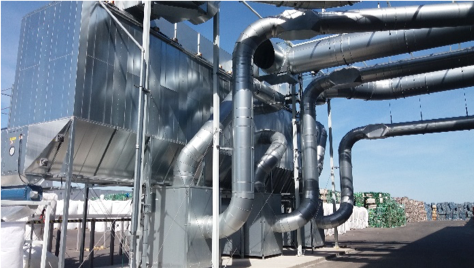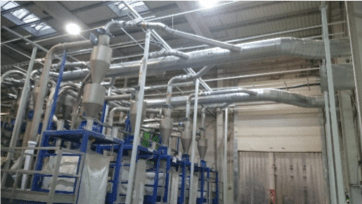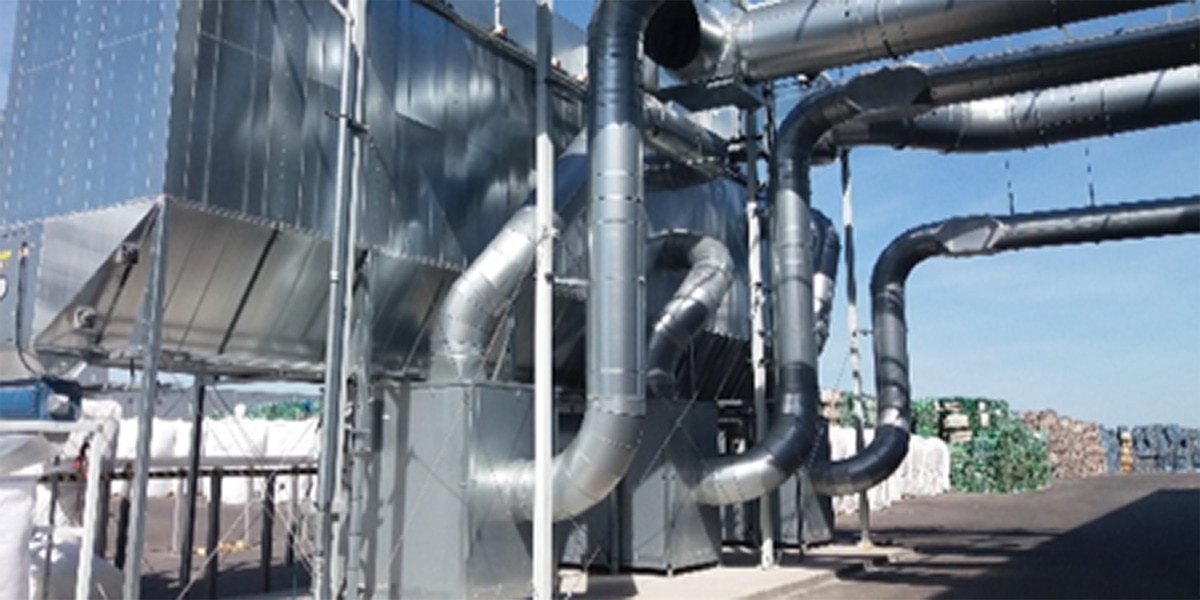The Challenge
This factory, located in Poland, is a well-known producer of PET flakes and granules. This Kongskilde customer has a complete line for the downsizing of PET bottles – from grinding to sorting, washing, and cleaning – and also has a complete line for the production of PET granules.
The customer was struggling with a vast amount of dust coming from the various stages of processing bottles into PET flakes. Such a large amount of dust constituted a safety high risk and required the production facilities to be cleaned every two weeks.
Contamination of devices and control cabinets caused frequent mechanical and electrical damage. Moreover, audits did not have a satisfactory outcome due to the high amount of dust
For these reasons, the customer needed an effective solution to collect dust directly from the production processes.


The Facts
- Material: Plastic dust
- Material quantity: 1 m3/24 hours
- Number of suction points: 47 cyclones and 4 hoods above optical sorters
- System specifications: Max. distance 40 m
- Max. height: 7 m
- Max. number of bends: 10
- Amount of air to be filtered: ~ 80,000 m3/h
The Solution
- The system includes dust suction points with pressure sensors.
- The installation was divided into three separate lines where the lift force is generated by BTK fans.
- All dust is separated from the transported air by the bag filter (KNFK) and discharged to a large bag with a dust-level indicator.
- All of this is controlled by an intuitive control device.
The Advantages and Benefits
- Kongskilde’s solution collects inline waste – there is no longer a need to stop production for cleaning.
- The risk of accidents has been significantly reduced.
- Equipment failures are minimised.
- Downtime of control equipment has been reduced.
- The return of air from the filter has lowered heating costs.
- Dust collection significantly facilitates logistics, and allows it to be further processed or resold.

